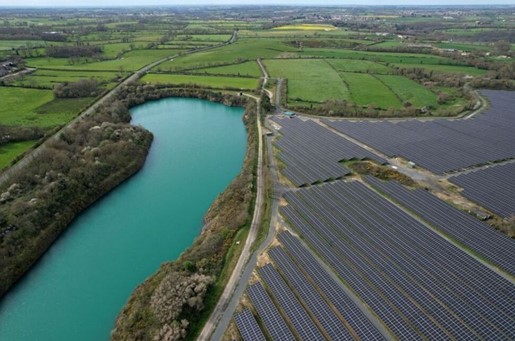
Corporations Urge Global Leaders at UN to Fulfill Renewable Energy Commitments
On Monday, top executives from major corporations called on world leaders to uphold the commitments made during last year's COP28 summit in Dubai. The agreement aims to triple the global renewable energy capacity by 2030 as part of the ongoing fight against climate change.
Among the companies pushing for action were Amazon.com, a major energy consumer, along with energy providers such as Vestas and Iberdrola. Their statement was released during an event held alongside the United Nations Climate Week in New York. These corporations urged governments to integrate clear, measurable renewable energy targets into the national climate strategies they will submit to the U.N. next February. They also emphasized the need for detailed investment plans to ensure these goals are achieved.
Focusing on the goal of tripling renewable energy capacity is a key priority during both Climate Week and the U.N. General Assembly. Global leaders, companies, and NGOs are working together to strengthen international climate commitments.
In a related event, California made headlines on Monday by filing a lawsuit against Exxon Mobil, accusing the oil giant of contributing to global plastic pollution. Attorney General Rob Bonta announced that after nearly two years of investigation, evidence shows Exxon misled the public about the limitations of recycling efforts. Exxon has denied these allegations.
These climate-focused discussions are taking place as the U.N. hosts a series of related events, which kicked off Sunday alongside the General Assembly. During the opening speeches, leaders voiced concerns about the widening gap of trust between nations, especially as climate-driven disasters continue to escalate.
U.N. Secretary General Antonio Guterres highlighted this urgency in his remarks, noting, "Global challenges are advancing faster than our ability to address them. Crises are interlinked, such as how digital technology spreads climate misinformation, which further erodes trust and deepens polarization."
Barbados' Prime Minister Mia Mottley echoed these concerns, calling for a "reset" in global governance structures to better address crises and support those most affected.